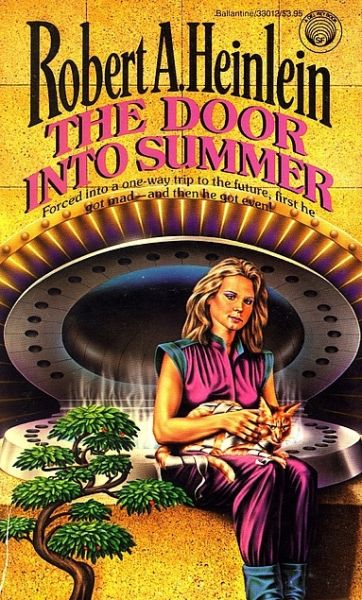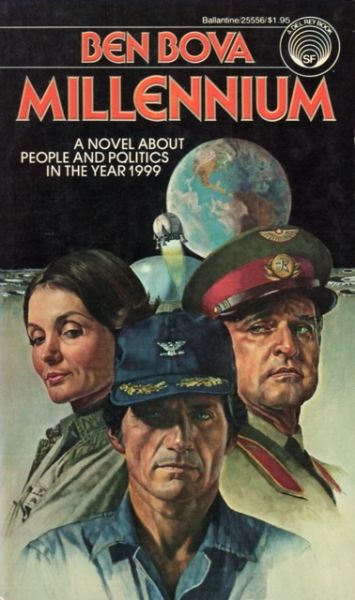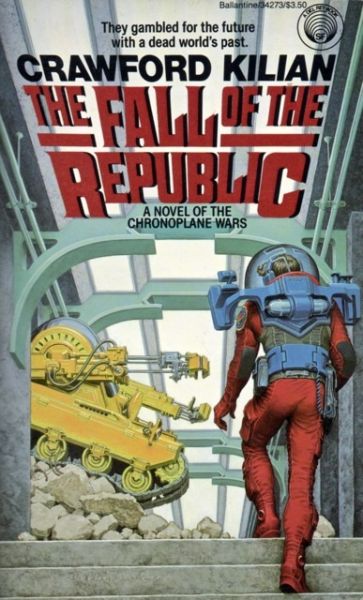Millennial Review IV: Equality: In the Year 2000 by Mack Reynolds (1977)
Equality: In the Year 2000
By Mack Reynolds

19 Jan, 2000
Millennial Reviews
0 comments
Equality: In the Year 2000
Mack Reynolds
Ace, 1977
272 pages
The more SF&F I read, the more I think a title of the form Phrase: Phrase is a bad sign.
Synopsis: This is a sequel to Looking Backward: From the Year 2000, which was in a sense Mack Reynolds' reply to Edward Bellamy's book of a similar title: Reynold's Looking Backwards is dedicated to Bellamy. Julian West is a wealthy man who in the 1970s finds he has a fatal heart condition and has himself frozen. He wakes in the year 2000 to find the US has a new, centralized economy. Most people are not necessary to make the economy function so they are on guaranteed annual income, unemployed in the industrial sense but occupied in hobbies. Luckily for the author, West is a pretty ignorant man who asks just the right questions so that his hosts can natter on and on about the advances of the year 2000, in a style less interesting than your average parody of Marxist rhetoric circa 1977. West also has seen a lot of the seamy underside of the 20th century and has recurring dreams about it, in case the reader misses the point: Future GOOD, Past BAD. There's a minor plot about an attempted counter-revolution which is stymied with less effort than I am putting into typing this review and a love affair so lackluster and pallid it might have come from an Analog story.
I have received beatings which were more fun than reading this book. This surprised me, as Reynolds at his best was entertainingly Marxist but not in the airy fairy "I have never worked for a living, have no real-world experience and if you present evidence I don't like I have my fingers jammed in my ears" style of some authors. Reynolds did a lot of travelling and wasn't afraid to mix with the locals. ISTR he was arrested at least once for illegally crossing borders on the other side of the Iron Curtain and he used his experiences in North Africa in his Black Man's Burden series [which I am frankly afraid to go back and look at]. He didn't have any illusions about what was really going on in the Soviet Bloc, having been there without supervision. That said, this is a dull, dull book, with the exception of the 20th century scenes, which are more interesting but authentically unpleasant.
That said, one of its strengths from the POV of these reviews is that the characters West talks to go on and on about the progress between the 1970s and 2000. Oddly enough, a lot of the areas mentioned -are- just the areas we did advance in, except space. Like Bellamy, Reynolds thought centralized economies could avoid the inefficiencies of unplanned economies and outperform them. In the 1970s this was a perfectly respectable position to take, especially since the free economies of the day were performing in such a lackluster manner, rather like the crisis which inspired Bellamy in the 1880s. The problem is that in pretty much every field, the people of Equality have progressed much farther than is possible. In his essay in the 1950s about predicting the future, Heinlein commented that people tended to overestimate short term progress and underestimate long term progress. Equality is a perfect example of this: these people have effective immortality, for example, and STL interstellar probes [No PCs, though]. I think it's interesting to look at a book like this with Vinge's Singularity in mind, as I expect Vinge is making the same progress-without-limits errors, although Vinge does it much more entertainingly.



